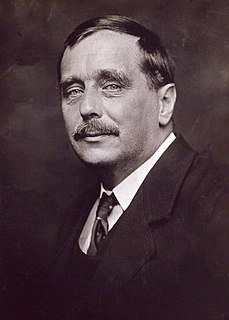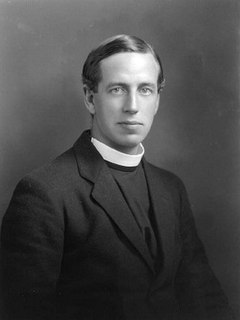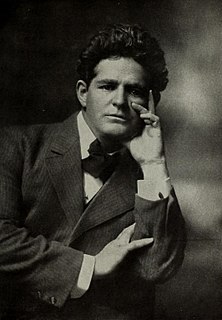The Weekly and the League
Titterton was in practical terms the organiser of Chesterton's Distributist League, and sub-editor of G. K.'s Weekly .
G. K.'s Weekly was a British publication founded in 1925 by seminal writer G. K. Chesterton, continuing until his death in 1936. Its articles typically discussed topical cultural, political, and socio-economic issues yet the publication also ran poems, cartoons, and other such material that piqued Chesterton's interest. It contained much of his journalistic work done in the latter part of his life, and extracts from it were published as the book The Outline of Sanity. Precursor publications existed by the names of The Eye-Witness and The New Witness, the former being a weekly newspaper started by Hilaire Belloc in 1911, the latter Belloc took over from Cecil Chesterton, Gilbert's brother, who died in World War I: and a revamped version of G. K.'s Weekly continued some years after Chesterton's death by the name of The Weekly Review.
There were financial problems, and embarrassment caused by Titterton's commissioning of articles on H. G. Wells by the lesser writer Edwin Pugh; Pugh's articles had a hostile edge and Chesterton had to pacify Wells. [3] His position on the Weekly came to an end in 1928, when he was replaced by Edward Macdonald, [4] in a temporarily acrimonious situation, leading to the separation of the Weekly and the League. [5]

Herbert George Wells was an English writer. He was prolific in many genres, writing dozens of novels, short stories, and works of social commentary, satire, biography, and autobiography, and even including two books on recreational war games. He is now best remembered for his science fiction novels and is often called a "father of science fiction", along with Jules Verne and Hugo Gernsback.

Edwin William Pugh was an English writer. He published 33 books, primarily novels and short story collections, and focused on working-class "cockney school" storylines.
Under Chesterton's influence, he became a Catholic convert in 1931. [6]

Ronald Arbuthnott Knox was an English Catholic priest, theologian and author of detective stories. He was also a writer and a regular broadcaster for BBC Radio.

Joseph Hilaire Pierre René Belloc was an Anglo-French writer and historian. He was one of the most prolific writers in England during the early twentieth century. He was known as a writer, orator, poet, sailor, satirist, man of letters, soldier and political activist. His Catholic faith had a strong impact on his works. He was President of the Oxford Union and later MP for Salford from 1906 to 1910. He was a noted disputant, with a number of long-running feuds, but also widely regarded as a humane and sympathetic man. Belloc became a naturalised British subject in 1902, while retaining his French citizenship.
Maurice Baring was an English man of letters, known as a dramatist, poet, novelist, translator and essayist, and also as a travel writer and war correspondent. During World War I, Baring served in the Intelligence Corps and Royal Air Force.
Harry Douglas Clark Pepler (1878–1951), known as Hilary Pepler, was an English printer, writer and poet. He was an associate of both Eric Gill and G. K. Chesterton, working on publications in which they had an interest. He was also a founder with Gill and Desmond Chute in 1920 of a Catholic community of craftsmen at Ditchling, Sussex, called The Guild of St Joseph and St Dominic.

Cecil Edward Chesterton was an English journalist and political commentator, known particularly for his role as editor of The New Witness from 1912 to 1916, and in relation to its coverage of the Marconi scandal.
William Kean Seymour (1887–1975) was a British writer, by profession a bank manager. He was a poet and critic, novelist, journalist and literary editor.

Joseph Pearce is an English-born writer, and as of 2014 Director of the Center for Faith and Culture at Aquinas College in Nashville, Tennessee. Previously he had comparable positions, from 2012–2014 at Thomas More College of Liberal Arts in Merrimack, New Hampshire, from 2001–2004 at Ave Maria College in Ypsilanti, Michigan and from 2004–2012 at Ave Maria University in Ave Maria, Florida.

Joseph Leftwich (1892–1983), born Joseph Lefkowitz, was a British critic and translator into English of Yiddish literature. He is known particularly for his 1939 anthology The Golden Peacock of Yiddish poetry, and his 1957 biography of Israel Zangwill.
This is a chronological bibliography of books by the author Hilaire Belloc. His books of verse went through many different editions, and are not comprehensively covered.
Henry Noel Brailsford was the most prolific British left-wing journalist of the first half of the 20th century. A founding member of the Men's League for Women's Suffrage in 1907, he resigned from his job at The Daily News in 1909 when it supported the force-feeding of suffragettes on hunger strike.

George Holbrook Jackson was a British journalist, writer and publisher. He was recognised as one of the leading bibliophiles of his time.
This is a list of books written by G. K. Chesterton.

John Joy Bell, known professionally as J.J. Bell, was a journalist and author.

Sir Leo George Chiozza Money, born Leone Giorgio Chiozza, was an Italian-born economic theorist who moved to Britain in the 1890s, where he made his name as a politician, journalist and author. In the early years of the 20th century his views attracted the interest of two future Prime Ministers, David Lloyd George and Winston Churchill. After a spell as Lloyd George's parliamentary private secretary, he was a Government minister in the latter stages of the First World War. In later life the police's handling of a case in which he and a young woman were acquitted of indecent behaviour aroused much political and public interest, while a few years later he was convicted of an offence involving another woman.
Émile Leon Cammaerts CBE was a Belgian playwright, poet and author who wrote primarily in English and French.
"The Rolling English Road" is one of the best-known poems by G. K. Chesterton. It was first published under the title A Song of Temperance Reform in the New Witness in 1913. It was also included in the novel by Chesterton, The Flying Inn in 1914.

P.J. Kavanagh FRSL was an English poet, lecturer, actor, broadcaster and columnist. His father was the ITMA scriptwriter Ted Kavanagh.
Frances Chesterton, born Frances Alice Blogg (1869–1938) was an English author of verse, songs and school drama. She was the wife of G. K. Chesterton and had a large role in his career as amanuensis and personal manager.














